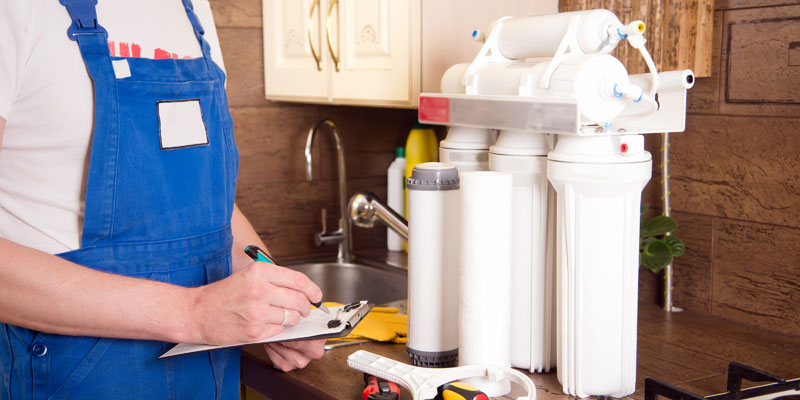A water filtration system can remove chemicals and other contaminants from your drinking water. When looking into a water filtration system, it’s best to understand all the options available to help determine what makes sense for your household.
What Is City Water?
Clean water consumption is not always well-defined. While many of us have used running tap water for drinking or cooking purposes, this may not actually be clean. City water is not pure water. In fact, much of city water has multiple ingredients. Depending on where you live, it can be difficult to know exactly which chemicals are inside your tap water. The most common chemicals are chlorine, fluoride, lead and nitrate. The most common contamination includes arsenic, E. coli, nitrate, and lead.
1.) Arsenic. Arsenic is a natural mineral, but it is not healthy to ingest. Arsenic can cause bladder, lung and skin cancer. By using city water to cook certain meals, arsenic can actually contaminate food such as rice or rice-based products. Since arsenic is a known human carcinogen, it is found hazardous for anyone’s health.
2.) E. coli. According to the United States Environmental Protection Agency, E. coli is a type of bacteria frequently found in city water that can cause cramps, nausea and headaches. This type of bacteria is especially harmful for infants and young children. Those with compromised immune systems can also be adversely affected by E. coli in the drinking water.
3.) Nitrate. Nitrate can also be found in city drinking water if it is not first purified. Excess nitrate can cause serious illness in infants that are younger than six months of age. Shortness of breath and discoloration are symptoms of too much nitrate.
4.) Lead. Lead is commonly found in city drinking water. Both infants and children can experience physical or mental delays in their development from too much lead. Over many years, even adults can experience kidney problems or high blood pressure from drinking water contaminated with lead.
What Is A Water Filtration System?
Water filtration can be done in a few different ways. By filtering city drinking water, impurities can be successfully removed. Many water filters remove chlorine as well as potentially harmful bacterial contaminants. This not only improves the taste and smell of the water, but also the health and well-being of those who cook with the water.
A water filtration system can reduce gastrointestinal disease as well as develop strong immune systems. By using a home filtration system, you won’t have to spend money on commercial water bottles.
Types of Water Filtration Systems
The reverse osmosis system is one of the most common filtration systems. It can be found under the kitchen sink. While many people try to install filtration systems themselves, it is not recommended. If a water installation system is installed wrong, this can damage the quality of water as well as potentially cause damage to the sink or inner piping. The best person to install a filtration system is a plumber.
This filtration system allows tap water to enter through a membrane so that the contaminants are caught in the process. A reverse osmosis system can remove 99% of pollutants. While this system does not require much maintenance, doing it yourself can cause unintended issues with plumbing.
A water distiller can also help purify city water. This works by linking the distiller to the actual water supply. Purified water can then hold up to ten gallons water, making it the most comprehensive home filtration system. Because this water system works automatically, running out of water or changing filters is never something you need to think about. The installation for a water distiller is relatively minimal, but can require some knowledge of plumbing.
Pitcher systems are very common when it comes to water purification systems. Because they are cheap and can be found in many retail stores, they are a good starter system. While pitcher systems do not remove all contaminants, they are considered better than city water. While this does not involve serious installation, the pitcher will need to be replaced.
DIY Installation vs. Professional
To install your filtration system, you have two options:
1.) Do it yourself
2.) Hire a professional
If you decide to do it yourself, knowing the risks are important. While there are online videos that can tell you how to install a water system, fully understanding how the plumbing system works is crucial. Cutting into the plumbing system can create cross-contamination, water damage and leaks. The best way to install a filtration system yourself, is to get as much information as possible from as many professional sources that are available.
Hiring a professional can avoid physical injury and potential plumbing issues. A professional can install a filtration system in minimal time while keeping the rest of the plumbing system fully intact.
Conclusion
A filtration system can help purify water for both you and your family. Because we all need water on a regular basis, this is one of the most important investments you can make. Removing harmful chemicals and bacteria in your water not only improves the taste and purity of your water, but can reduce the chance of ingesting unnecessary pollutants.


